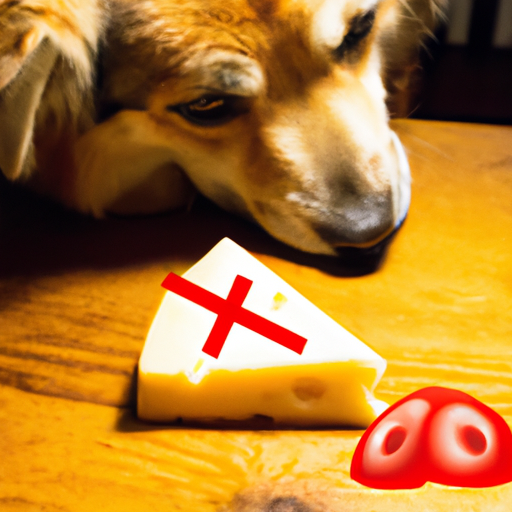Understanding Your Furry Friend’s Digestive System
First and foremost, you need to understand what’s going on inside your dog’s tummy. Let’s delve into the world of canine digestion. Your dog’s digestive system, much like your own, is designed to break down food and extract nutrients. But unlike you, your dog’s system has evolved primarily to process meat. That’s why certain foods, especially dairy products like cheese, can be harder for them to digest. Here’s a brief overview:
| Canine Digestive System | Human Digestive System |
|---|---|
| Designed to process meat | Designed to process a variety of foods |
| Shorter, simpler digestive tract | Longer, more complex digestive tract |
| Difficulty digesting lactose | Ability to digest lactose varies |
The Issue With Cheese
Now that you’ve got a basic understanding of your dog’s digestive system, let’s dive into the specific issue with cheese. Cheese is a dairy product, and most dairy products contain a sugar called lactose. Many dogs are lactose intolerant, which means their bodies don’t produce enough of the enzyme lactase to break down the lactose.
When a lactose-intolerant dog eats cheese, they may experience symptoms such as:
- Gas
- Bloating
- Diarrhea
- Vomiting
Not All Dogs Are The Same
Just like people, every dog is unique. Some dogs can tolerate cheese in small quantities, while others might get sick from just a tiny bit. It’s important to remember that what works for one dog might not work for another. Always monitor your dog carefully when introducing any new food into their diet.
Cheese Alternatives For Your Dog
So, you can’t feed your dog cheese. What now? Don’t worry, there are plenty of dog-friendly alternatives that you can use as a treat or training reward:
- Small pieces of cooked chicken
- Bits of carrot or apple
- Dog biscuits
- Peanut butter (make sure it doesn’t contain xylitol, as this is toxic to dogs)
Frequently Asked Questions
Q: Can I give my dog cheese as a treat?
A: It’s best to avoid it due to the potential for lactose intolerance and other digestive issues.
Q: What should I do if my dog accidentally eats cheese?
A: Monitor your dog for any signs of discomfort or illness. If symptoms persist, contact your vet.
Q: Are there any types of cheese that are safe for dogs?
A: Some dogs may tolerate low-lactose cheeses better, but it’s best to consult with your vet.
Remember, as a caregiver, you play a critical role in your pet’s health and well-being. Ensuring they have a balanced diet that suits their individual needs is paramount in keeping them happy and healthy for years to come.



